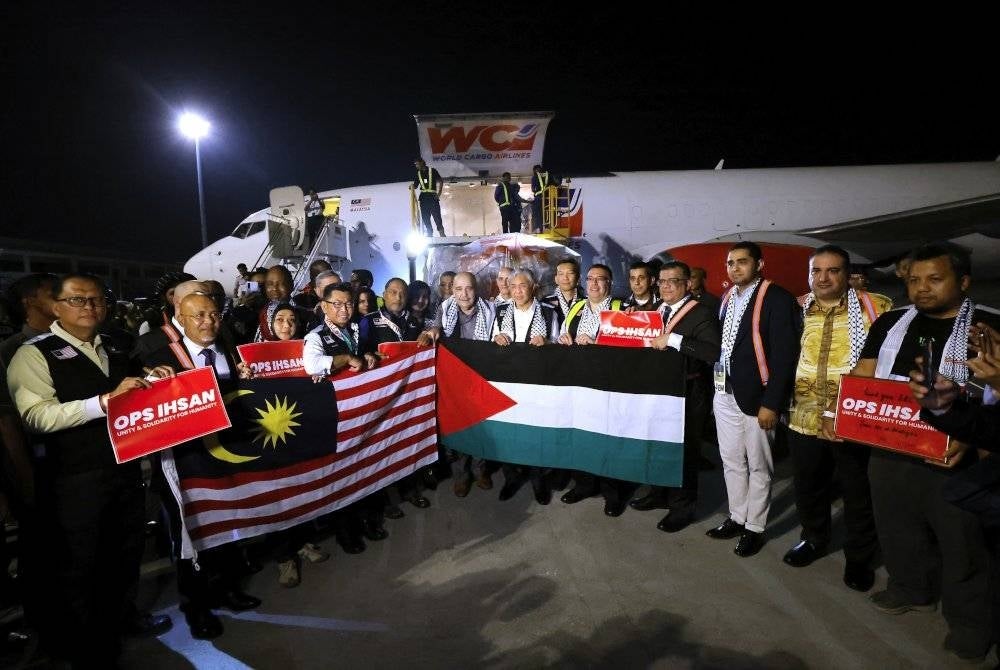A blow to national defence
MUHAMMAD FUAD MAT NOOR
The ongoing genocide or "slaughter" of the Palestinian people in Gaza, as of the time of writing this article, continues to escalate, with the Arab and Islamic world seemingly unable to take concrete actions to stop the injustices committed by the Zionist regime.
It has ushered in a new era of global politics where "might is right" prevails.
Key veto-holding countries, armed with nuclear weapons, which have long been vociferous in supposedly championing human rights and freedom, easily cancel any aid plans for the people of Gaza.
Now, the perpetrators of these injustices are set to introduce a bill known as the Hamas Sanctions Act in the U.S. Senate Foreign Relations Committee.
This bill has significant implications for Malaysia if it is approved.
Some of the provisions in the bill include blocking any leaders and members of the Palestinian militant group, Hamas, from seeking refuge outside of Gaza.
This would apply specifically to Qatar or Turkey, but is not limited to just these two countries.
Furthermore, hotels, property owners, banks, and any commercial entities in countries considered to have good relations with Hamas will be scrutinised, even if the country maintains good relations with the United States.
The classification of these countries will be reassessed to determine if they support violence by providing assistance to Hamas and should be subject to sanctions.
It is well known that Malaysia is a non-Arab country that vehemently advocates for the rights of the Palestinian people to have their own independent state.
Hence, it would not be surprising if Malaysia were to suffer the consequences if this bill becomes a reality and sanctions are imposed.
What is disheartening is that if this happens, one of the sectors that will be affected is the national defence sector.
This is because a significant portion of the systems, equipment, and operational features of national security agencies have been purchased from the United States and Western Europe.
This includes equipment such as fighter planes, unmanned aircraft, surveillance radar systems, mobile hospitals, and more.
Even more concerning, the country's ability to defend itself increasingly relies on assets acquired abroad rather than the other way around.
This contradicts what is advocated in the Defence White Paper, or DWP.
The DWP states that science, technology, and the defence industry are strategic components in the defence ecosystem to support the country's defence strategy.
Several companies in the Malaysian defence industry are said to have successfully developed capabilities, making them more competitive in maintenance, repair, and overhaul, as well as manufacturing.
Unfortunately, what we see today is quite the opposite, and some statements in the DWP appear to be more like fairy tales.
More worrisome for the country, despite the establishment of various committees to formulate the best ways to address defence programme or project issues, implementation has failed.
In fact, the remedy for projects facing problems or "illness" has been provided by the nation's expert administrators.
According to the Treasury Department, a project is categorised as "ill" when there is a delay of more than two months or 20 percent (whichever comes first) compared to the schedule set in the contract and the contractor is unable to improve its performance.
Strangely, programmes that have been delayed for years, not just two months, still fail to receive treatment, and it is only when they become viral in print and electronic media that they are taken seriously.
Mega defence-related programmes or projects that are stalled are a slap in the face and an insult to all citizens who love their country and strive hard to earn a living to pay the income taxes imposed by the government.
It is the sweat and toil of the people that partly fund defence programs.
What's even more unfortunate is that warnings, fines, and restrictions will be issued to ordinary citizens if they fail to fulfil their responsibilities or are late.
However, in the higher echelons of politics, the country's leadership, civil servants, and industry players seem to be acting as if nothing is wrong.
Download Sinar Daily application.Click Here!














